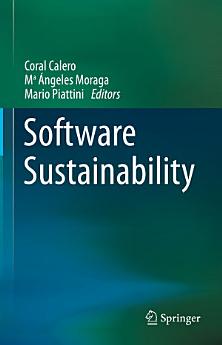Software Sustainability
អំពីសៀវភៅអេឡិចត្រូនិកនេះ
The target readership for this book includes CxOs, (e.g. Chief Information Officers, Chief Executive Officers, Chief Technology Officers, etc.) software developers, software managers, auditors, business owners, and quality professionals. It is also intended for students of software engineering and information systems, and software researchers who want to know the state of the art regarding software sustainability.
អំពីអ្នកនិពន្ធ
Ma Ángeles Moraga is Associate Professor at the Escuela Superior de Informática (University of Castilla-La Mancha, Spain). Her main research lines focus on the quality of software products and software sustainability. All her research has been carried out as a member of the Alarcos Research Group. She is currently the PI of a Green IT project and had participated as a researcher in international as well as several national projects.
Mario Piattini is Director of the Alarcos Research Group at UCLM. He is the Founder of DQTeam, S.L. and AQC Lab, S.L., spinoffs of the UCLM. He was ranked among the 15 “Top scholars in the field of systems and software engineering (2004-2008)” and the 15 “Most active experienced Software Engineering researchers in top-quality journal (2010-2017)”according The Journal of Systems and Software.






